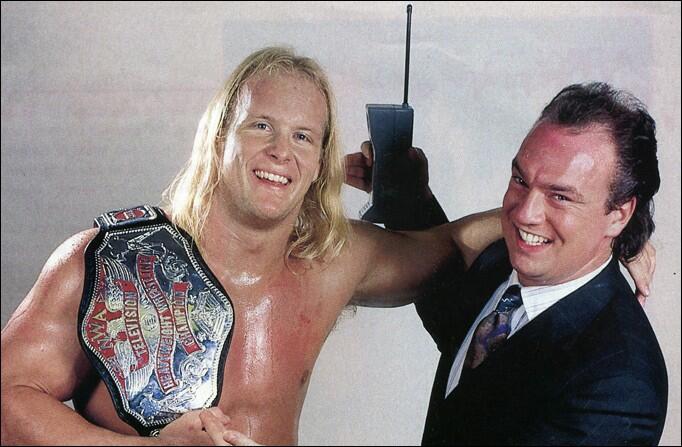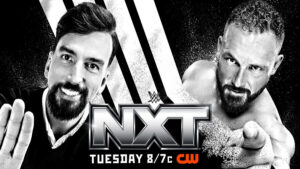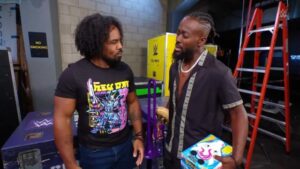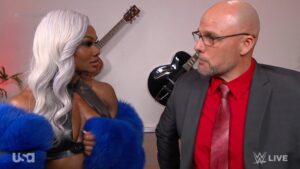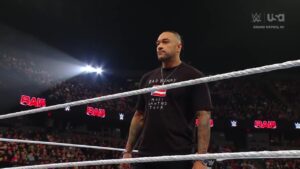New Year’s resolutions are hard to keep. Some researchers suggest that 95% of resolutions are abandoned by the end of January. The reasons these fail can vary, but there are common patterns in failure, such as a lack of persistence, preparation, and thought about if/how a goal can be realistically achieved. The same thinking is often missing when we think about wrestlers ascending to prominence.
Although I wrote about hope and opportunity in Ways Wrestlers Ascend and Gain Prominence, without preaching pessimism, various caveats and challenges mean this ascension isn’t always straightforward. There are reasons why some wrestlers are successful and others “fail” or remain in their place.
In this companion piece to the previously mentioned article, I am going to analyse some of the reasons why wrestlers do and don’t achieve the recognition we might believe they deserve.
Limited Viewpoint of Fans
As fans, we sometimes feel personally connected to wrestlers and the wrestling business. Now, more than ever, fans know how the sausage is made. The tricks of the company have been spilt. Wrestlers used to speak carny to hide their secrets. Now we all say it too and can talk with them on X. News sites share shreds of backstage information. Wrestlers, through interviews, “shoots”, or X rants, reveal details about themselves and where they work. Fans build parasocial relationships with wrestlers.
We know aspects of them, not the whole person. We know how the sausage is made, but that doesn’t make us butchers. Just because we hear the gossip doesn’t mean we know what it’s like inside the factory. We don’t know everything about them or their capacity or their happiness levels with where they are. We don’t really know them, although it feels like it.
Other sports have the same problem. I know football and rugby fans who presume to know psychology; they know what the player was thinking. They could manage teams better. As wrestling fans, it’s debatable whether we are worse in our fandom.
Our Narrative Isn’t Their Narrative
Bryan Danielson is a prime example of a wrestler who succeeded in WWE against the odds. Danielson succeeded and made strides for other indie wrestlers. Yet some fans will argue he deserved more and that Vince McMahon misused him.
Contrastingly, Danielson views his time in WWE fondly and still admires Vince. Bryan has a book of wisdom, the things he learnt from the former chairman. Even when Vince faced allegations of misconduct, Bryan said: “you still love someone when they make mistakes” (Fightful).
FTR were going to be repackaged in WWE as comedy clowns. Fans at the time were outraged. However, they were “we’ll give 100% and have fun with it” (Fightful again) until their contracts expired. They treated this creativity as part of their jobs. They intended to be professionals.
Wrestling is still a job. Wrestlers are doing a job. Jobs have rules and political structures. Wrestlers have the autonomy to choose what and how they deal with their jobs. Like with many jobs, things don’t happen instantly. They work their way into their spots in the ring and behind the scenes, proving themselves to their bosses (promoters and fans).
Have Luck, or Create Your Own
Throughout history, different bookers have thought they knew what makes a top guy. Verne Gagne liked legitimate athletics. Vince McMahon liked big, muscular men who passed the airport test. Wrestlers who fitted the booker’s template were given opportunities due to their advantages. They get attention and push. Yet this doesn’t always pan out long-term.
For every Hulk Hogan, Batista and Brock Lesnar, there were failures. Tom Magee became a mythical figure, the supposed next Hogan who faced Riki Choshu in All Japan before his WWE run. And yet, things didn’t work out because all the pieces were in place. However, his opponent in his infamous lost tap best match would succeed despite not fitting Vince’s expectations of a top star.
Bret “The Hitman” Hart’s ability to make even the greenest of opponents like the Mega Man look God-tier ready was undeniable. Beyond his in-ring excellence, Bret played the long game. Building a relationship with his boss and delivering consistently, when the business changed, Bret was trusted to carry the company. He, like others, has since made his luck.
Adapt or Perish
Sometimes, there are those lightbulb moments. Bret signposts Summerslam 1992 as a turning point in his career in what Vince saw in him. In the darkness of Beware of the Dog, Vince saw the light with Steve Austin. Yet would the rise of Stone Cold have been possible if he had not gone to ECW and found his voice?
WCW’s Steve Austin was a fantastic wrestler, but as Dutch Mantell once asked him: “What so stunning about ‘Stunning’ Steve Austin”? There was a lack of an investable character. Even when Austin went to WWE, he admitted the Ringmaster gimmick was terrible. Nevertheless, it was an opportunity that led to something better. In a similar vein, would we have LA Knight today if he had refused to go onto the main roster as Max Dupri?
Adaptability, even in the face of terrible material, has allowed wrestlers to transcend. Kevin Owens had pies thrown in his face before Toni Storm and was humiliated by Braun Strowman in a cage match and portable toilet. Sami Zayn danced with Bobby Lashley’s sisters. If they didn’t commit to these bouts of humiliation, would fans think they deserved better? Would management also invest in someone who’s not willing to commit to their job?
Creativity
Bookers and promoters have hurt wrestlers by tampering with the creativity that has gotten them over with fans. Bray Wyatt’s creative vision, we presume, was diluted and interfered with multiple times, reducing each version’s aura. The cult leader, the Fiend, and before his untimely death, there were concerns that history would repeat itself with the third incarnation. Yet when wrestlers are allowed too much creative input, like MJF’s World Championship run, where the champion supposedly had a hand in his clever, it results in mixed success.
Some wrestlers thrive with restrictions. Bryan Danielson thrived on WWE’s restrictions because they pushed his creativity. Sami Zayn has likewise enjoyed the limits because they allowed him to build matches and segments artistically to meet his standards.
Others are better off independently, as Matt Cardona found. His creativity has rewarded him with more money than he earned in WWE. Jon Moxley’s prison escape vignette gained him attention. He found in AEW a promotion that would allow him the creative freedom to present the persona he wanted to embody.
The Desire for Change
Nic Nemeth, in his Busted Open Radio interview, talked of the impact talking with Moxley has had on his decision to reinvent himself on the independent scene. His “Wanted Man” vignette borrows from Moxley’s vignette and goes further. Although his brother, Ryan Nemeth, has said he told Nic for years to leave WWE, Nic was comfortable. Yet in Busted Open, the former Dolph Ziggler talked about how he had to question himself: “Can I adapt to this?”
For years, Nemeth seemed happy and content in WWE, making money and with his role on the card. Some have criticised this, but it’s his life to live. Ultimately, for a wrestler to change and go to another company or alone is a gamble that impacts their family’s lives as well as their own.
Factors beyond their control, like injuries, politics, unforeseen events, and the zeitgeist moving on, mean they have a lot to lose or gain financially and personally. Although wrestlers like Orange Cassidy and Danhausen have been able to gamble on unique and popularising gimmicks, they had different stakes to lose as someone like Nemeth, who had the safety net of WWE. For a wrestler to stay comfortable, this should be just as acceptable because not everyone needs or wants a change.
Not Easy, A Lot of Grits Needed
Few wrestlers were overnight successes. Even Hulk Hogan had his leg broken before he began training and fell out with Vince McMahon Sr before becoming a wrestling icon. If they didn’t persist and show grit, they wouldn’t have found their luck.
As history has shown, more wrestlers than not who had potential have even left the wrestling business for other professions. Their reasons have varied. Some may not have the skills to adapt and likewise may wish to pursue something else. The indy scene has not always been as fruitful, and the internet rewards creativity, but it’s still hard work, especially alone without the backing of a billion/million-dollar machine.
The concept of grit is spoken about a lot in wrestling, especially by old-school wrestlers, and this largely is true. Wrestlers sacrifice a lot, and as people, everyone has their limit on how much they are willing to sacrifice before calling it quits. Even someone like Eddie Kingston was going to call it stop when he was left stranded in the UK during the Pandemic. What would have been if not for AEW? What would and wouldn’t be possible if not for good timing?
More LWOS Pro Wrestling
Stay tuned to the Last Word on Pro Wrestling for more on this and other stories from around the world of wrestling, as they develop. You can always count on LWOPW to be on top of the major news in the wrestling world, as well as to provide you with analysis, previews, videos, interviews, and editorials on the wrestling world.


